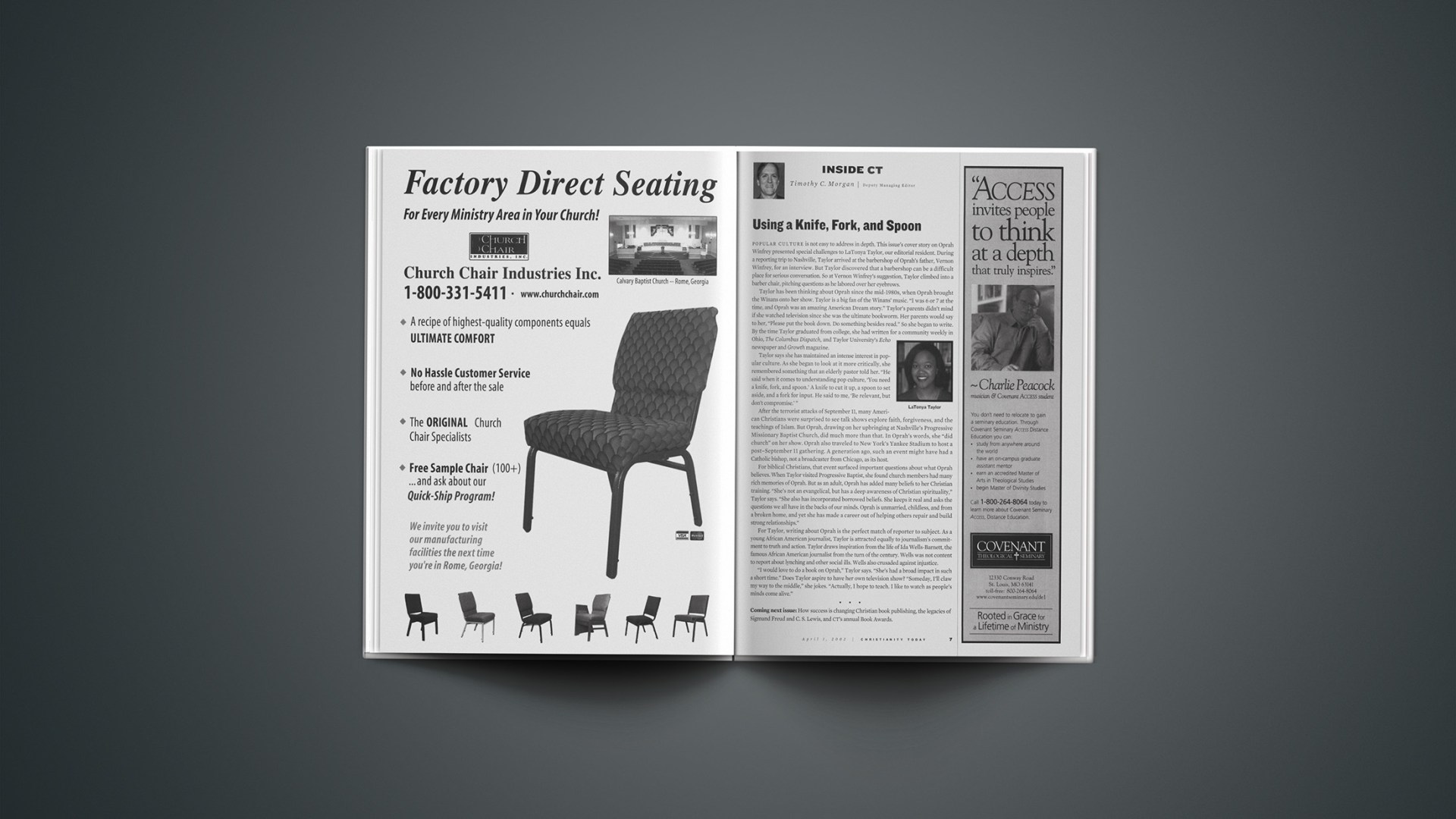Popular culture is not easy to address in depth. This issue’s cover story on Oprah Winfrey presented special challenges to LaTonya Taylor, our editorial resident. During a reporting trip to Nashville, Taylor arrived at the barbershop of Oprah’s father, Vernon Winfrey, for an interview. But Taylor discovered that a barbershop can be a difficult place for serious conversation. So at Vernon Winfrey’s suggestion, Taylor climbed into a barber chair, pitching questions as he labored over her eyebrows.
Taylor has been thinking about Oprah since the mid-1980s, when Oprah brought the Winans onto her show. Taylor is a big fan of the Winans’ music. “I was 6 or 7 at the time, and Oprah was an amazing American Dream story.” Taylor’s parents didn’t mind if she watched television since she was the ultimate bookworm. Her parents would say to her, “Please put the book down. Do something besides read.” So she began to write. By the time Taylor graduated from college, she had written for a community weekly in Ohio, The Columbus Dispatch, and Taylor University’s Echo newspaper and Growth magazine.
Taylor says she has maintained an intense interest in popular culture. As she began to look at it more critically, she remembered something that an elderly pastor told her. “He said when it comes to understanding pop culture, ‘You need a knife, fork, and spoon.’ A knife to cut it up, a spoon to set aside, and a fork for input. He said to me, ‘Be relevant, but don’t compromise.’ “
After the terrorist attacks of September 11, many American Christians were surprised to see talk shows explore faith, forgiveness, and the teachings of Islam. But Oprah, drawing on her upbringing at Nashville’s Progressive Missionary Baptist Church, did much more than that. In Oprah’s words, she “did church” on her show. Oprah also traveled to New York’s Yankee Stadium to host a post-September 11 gathering. A generation ago, such an event might have had a Catholic bishop, not a broadcaster from Chicago, as its host.
For biblical Christians, that event surfaced important questions about what Oprah believes. When Taylor visited Progressive Baptist, she found church members had many rich memories of Oprah. But as an adult, Oprah has added many beliefs to her Christian training. “She’s not an evangelical, but has a deep awareness of Christian spirituality,” Taylor says. “She also has incorporated borrowed beliefs. She keeps it real and asks the questions we all have in the backs of our minds. Oprah is unmarried, childless, and from a broken home, and yet she has made a career out of helping others repair and build strong relationships.”
For Taylor, writing about Oprah is the perfect match of reporter to subject. As a young African American journalist, Taylor is attracted equally to journalism’s commitment to truth and action. Taylor draws inspiration from the life of Ida Wells-Barnett, the famous African American journalist from the turn of the century. Wells was not content to report about lynching and other social ills. Wells also crusaded against injustice.
“I would love to do a book on Oprah,” Taylor says. “She’s had a broad impact in such a short time.” Does Taylor aspire to have her own television show? “Someday, I’ll claw my way to the middle,” she jokes. “Actually, I hope to teach. I like to watch as people’s minds come alive.”
Copyright © 2002 Christianity Today. Click for reprint information.










